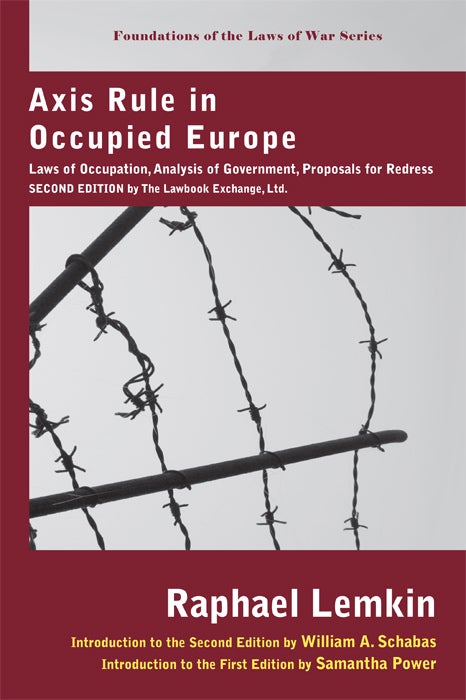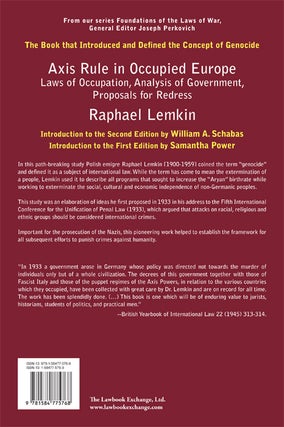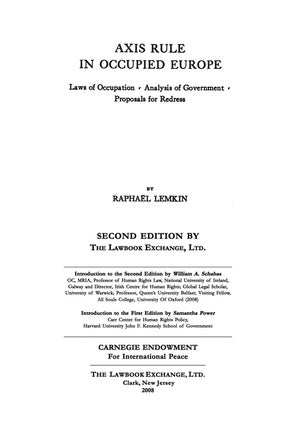Axis Rule in Occupied Europe, 2nd ed: Laws of Occupation, Analysis...
With New Introductions by Samantha Power and William A. Schabas Lemkin, Raphael. Axis Rule in Occupied Europe: Laws of Occupation, Analysis of Government, Proposals for Redress. Originally published: Washington: Carnegie Endowment for International Peace, Division of International Law, 1944. Second edition by The Lawbook Exchange, Ltd. xxiii (vii-xxiii new introductions), xxxviii, 674 pp. Introduction to the second edition by William A. Schabas, OC, MRIA, Professor of Human Rights Law, National University of Ireland, Galway and Director, Irish Centre for Human Rights; Global Legal Scholar, University of Warwick; Professor, Queen's University Belfast; Visiting Fellow, All Souls College, University Of Oxford (2008). Introduction to the first edition by Samantha Power, lecturer in public policy at Harvard's John F. Kennedy School of Government and author of "A Problem from Hell": America and the Age of Genocide, winner of the 2003 Pulitzer Prize. Reprinted 2005, 2014 by The Lawbook Exchange, Ltd. ISBN-13: 9781584775768; ISBN-10: 1584775769. Laminate hardcover. Light shelfwear. Else very good. $55.95 * A title in The Lawbook Exchange series, Foundations of the Laws of War, General Editor Joseph Perkovich. In this pathbreaking study Polish emigre Raphael Lemkin [1900-1959] coined the term "genocide" and defined it as a subject of international law. While the term has come to mean the extermination of a people, Lemkin used it to describe all programs that sought to increase "Aryan" birthrate while working to exterminate the social, cultural and economic independence of non-Germanic peoples. This study was an elaboration of ideas he first proposed in 1933 in his address to the Fifth International Conference for the Unification of Penal Law (1933), which argued that attacks on racial, religious and ethnic groups should be considered international crimes. Important for the prosecution of the Nazis, it helped to establish the framework for all subsequent efforts to punish crimes against humanity.
Price: $55.95
Book number 75791




